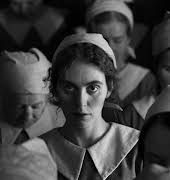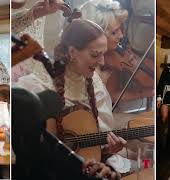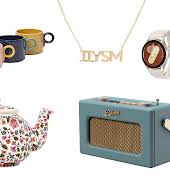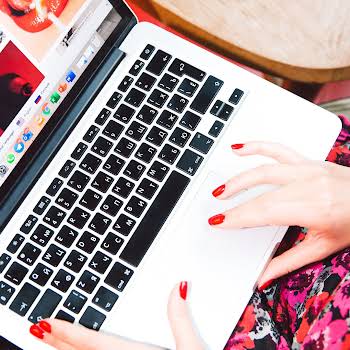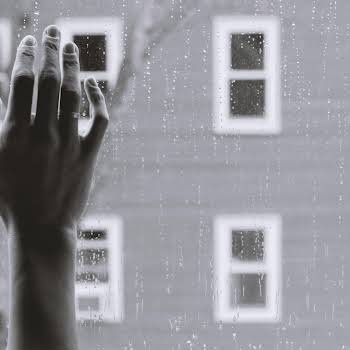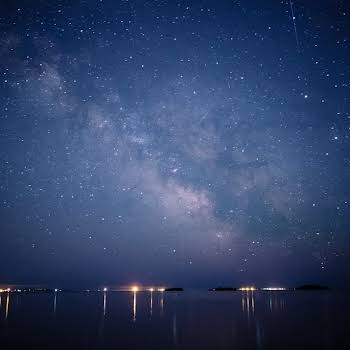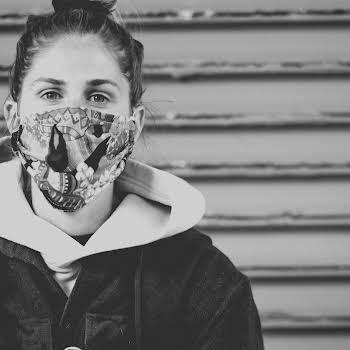
Mary in Marseille: ‘I’ve worked in many trouble spots where lockdowns and curfews were common’
By IMAGE
30th Mar 2020
30th Mar 2020
In the midst of the Coronavirus crisis IMAGE has reached out to women all over the world to hear how the disease is impacting their lives and their country. Mary Fitzgerald is a writer originally from Cork and now living in Marseille.
Early each morning, I sit at my kitchen table and fill out my ‘attestation’ – the signed document everyone living in France is legally obliged to carry with them whenever they leave their home. We have been required to do so – non-compliance means hefty fines – since March 16, when French president Emmanuel Macron announced a nationwide lockdown, telling us: “We are at war” against the Coronavirus.
Since then, we can only leave our homes for a limited number of reasons: to buy food or medicine (all shops and non-essential businesses aside from grocery stores and pharmacies are closed), for medical assistance or for short, solo exercise but only within a 1km radius of one’s residence.
The sight of the island prison of Château d’If gives us Marseille dwellers a certain perspective
Luckily for me, that allows me to start my day with a walk up a hilly street near my home to the Marseille landmark affectionately known as the Bonne Mère, or Good Mother, a reference to the golden statue of the Virgin Mary that looks out over the city from the Notre Dame de la Garde basilica. The view from the top – Marseille hugging a blue, blue Mediterranean – is breathtaking. The sight of the island prison of Château d’If – where Dantès in the Count of Monte Cristo was held for six years in solidarity confinement – gives us Marseille dwellers a certain perspective during these days of lockdown.
Olive oil and wine
My favourite neighbourhood boulangerie remains open – freshly baked bread will always be considered an essential in France
On my way home, I feel a twinge when I walk past some of my favourite restaurants, cafés and independent stores, all shuttered. A labour of love for so many proprietors who now face an uncertain future. My favourite neighbourhood boulangerie remains open – freshly baked bread will always be considered an essential in France – which means a daily supply of their delicious sourdough baguette.
I have stocked up on Provençal olive oil and wine produced from Marseille’s hinterland.
We haven’t experienced any of the panic buying happening elsewhere. My local supermarket saw a slight drop in pasta, rice, coffee, and milk stocks in the first days after Macron’s announcement but there were no empty shelves. In my quartier, people are being sensible when they go shopping, forming queues that observe distancing recommendations. I have stocked up on Provençal olive oil and wine produced from Marseille’s hinterland. Also the famous Savon de Marseille, an olive oil soap made here since the Middle Ages which has seen a recent uptick in sales due to more vigorous hand washing.
Resilience and solidarity
I have lived and worked in many trouble spots where lockdowns and curfews were common
Throughout my career as a foreign correspondent for the Irish Times and other media, I have lived and worked in many trouble spots where lockdowns and curfews were common. I’ve been sharing tips with friends who are experiencing this for the first time: the importance of sticking to a routine, of getting exercise, of eating well, and staying in contact with family and friends. Zoom cocktail hour has become a regular in my diary. A brunch I was due to host this weekend will now happen on Zoom.
I time my evening run to coincide with what has become a become a nightly ritual across France: the cheering for medical and other essential services personnel
I time my evening run to coincide with what has become a become a nightly ritual across France: the cheering for medical and other essential services personnel helping the country get through this challenging time. As I jog around Marseille’s deserted Vieux Port, a wonderful cacophony rises from the city as people pay tribute by applauding, ululating or even banging on pots and pans. It is incredibly moving.
Marseille is no stranger to plagues and epidemics. Throughout its existence, the city has faced several sweeping in from the Mediterranean, including the Great Plague of 1720, one of Europe’s last major outbreaks of bubonic plague. That history is embedded in Marseille’s soul. So too is a spirit of resilience and solidarity in the face of common adversity. That is what we will draw on in the weeks and months to come.
Read more: Alex in Barcelona: ‘My kids and I have not left our 90sm apartment in 16 days’
Read more: Charlie in Singapore: ‘In Singapore on average, I have my temperature taken 6 times a day’
Read more: Eimear in Surrey: ‘I got a temperature and a headache. I went into a deep depression and panic’
Read more: Emma in Sydney: ‘I have to say, home has never felt so far away’
Read more: From Singapore to Sydney: Women around the world tell us how coronavirus is impacting their lives



